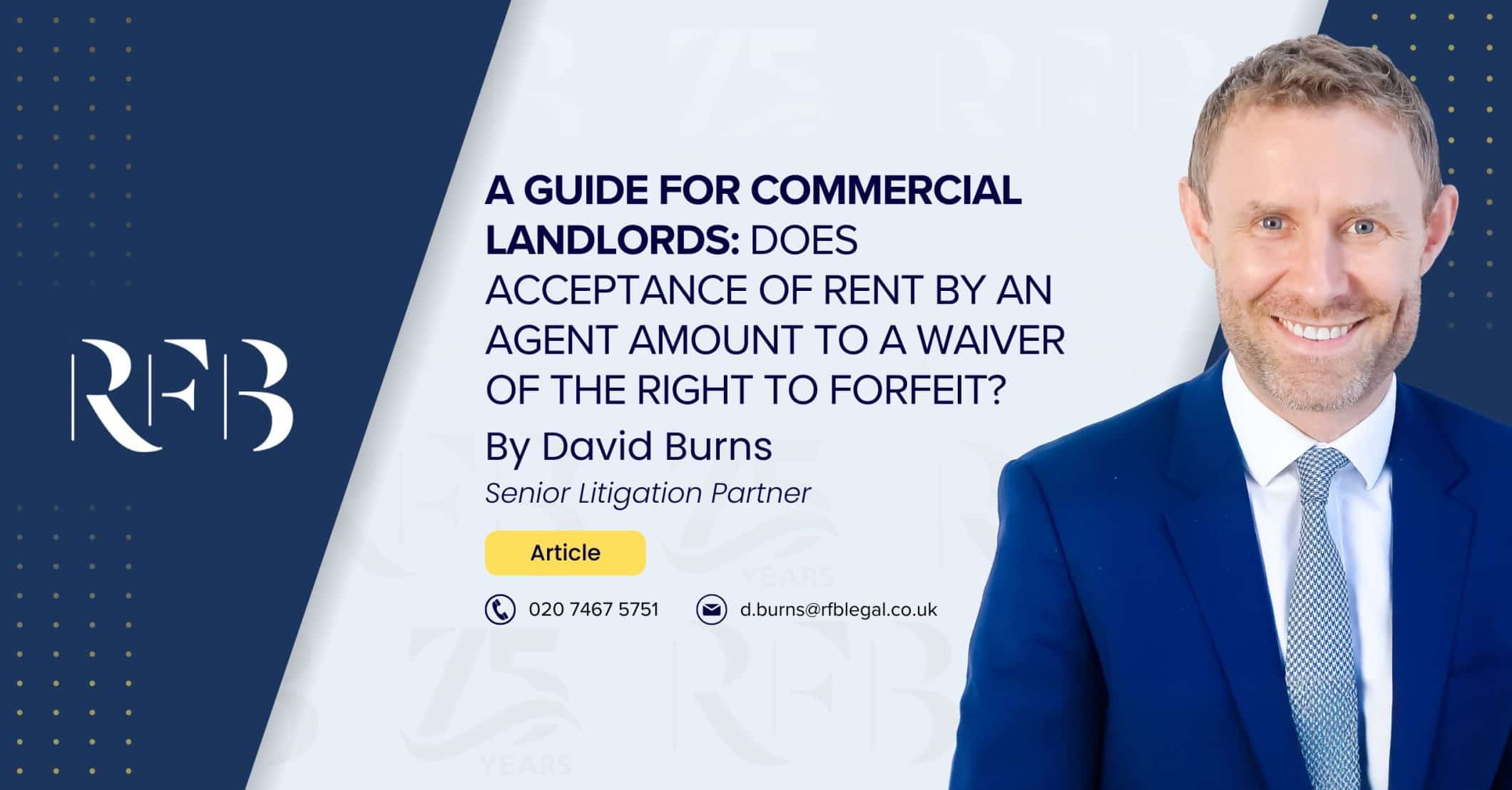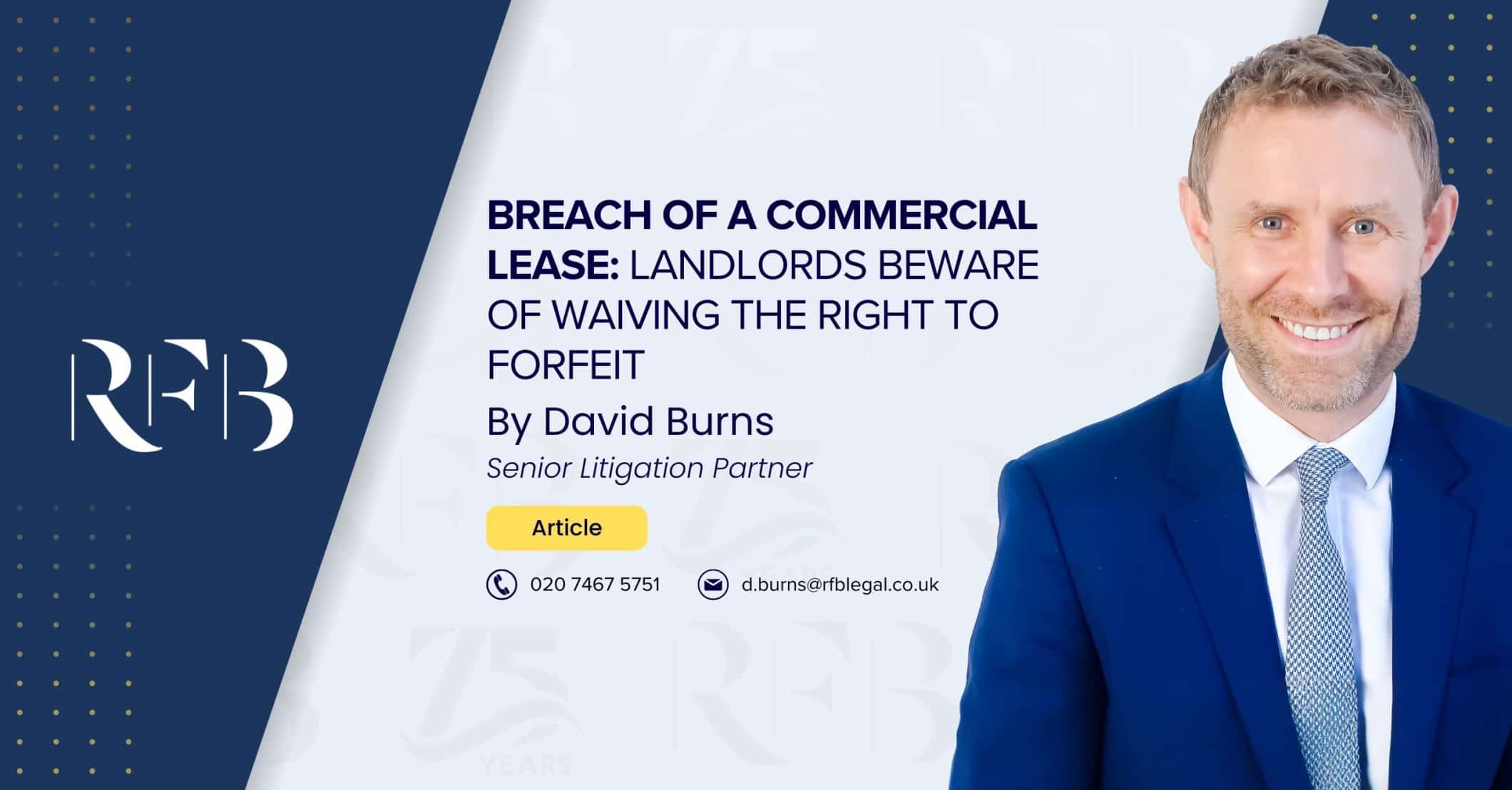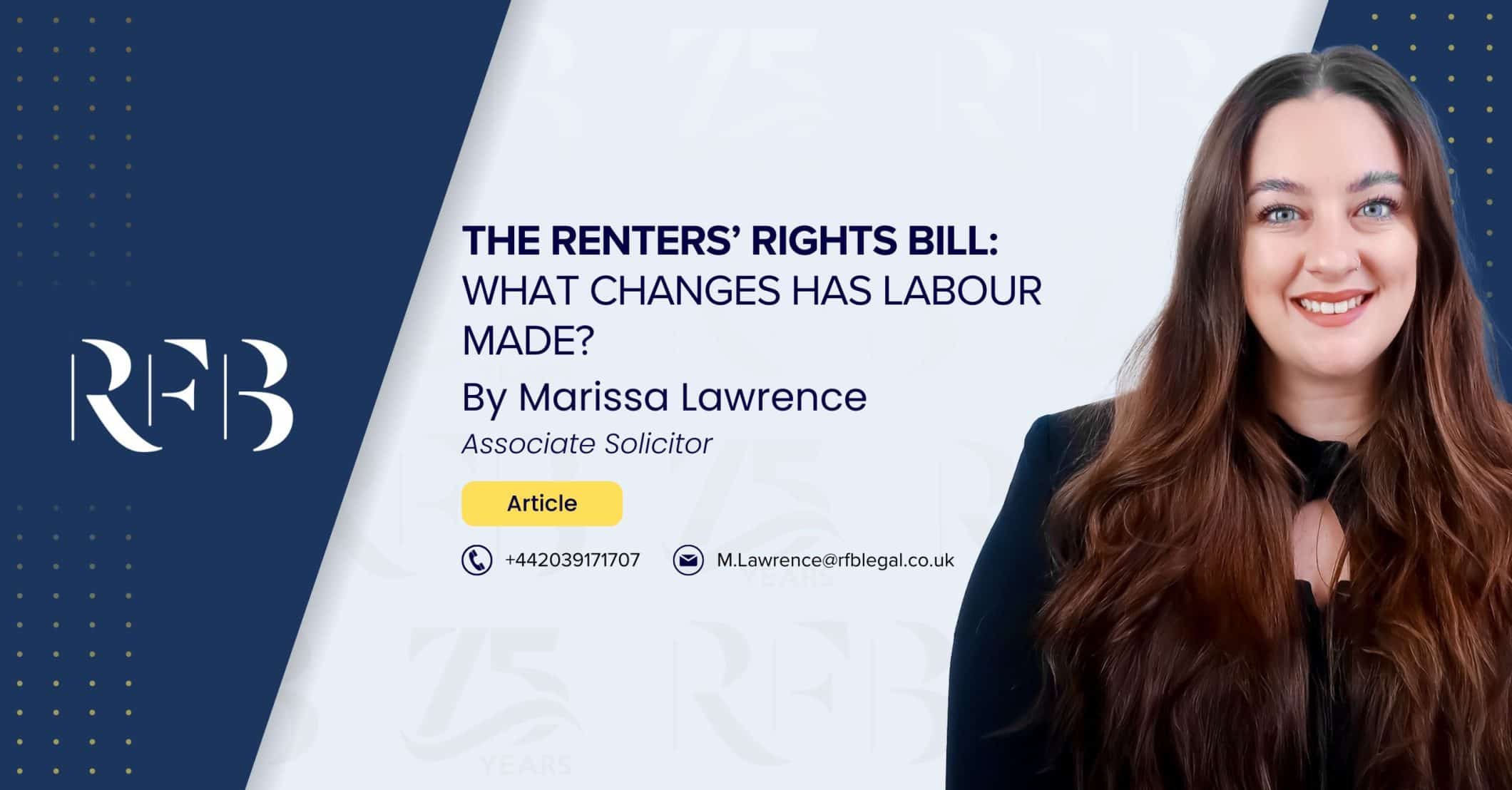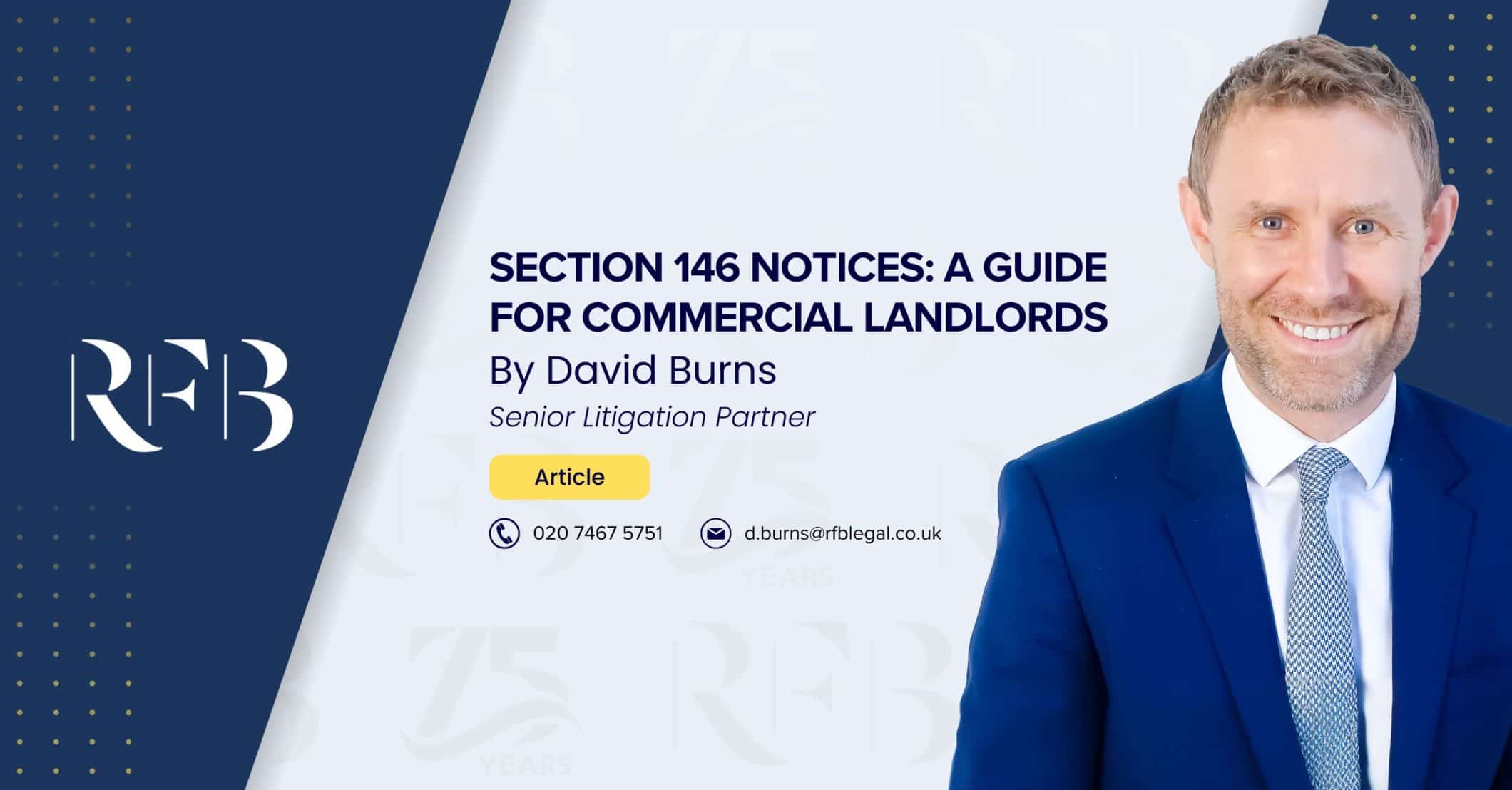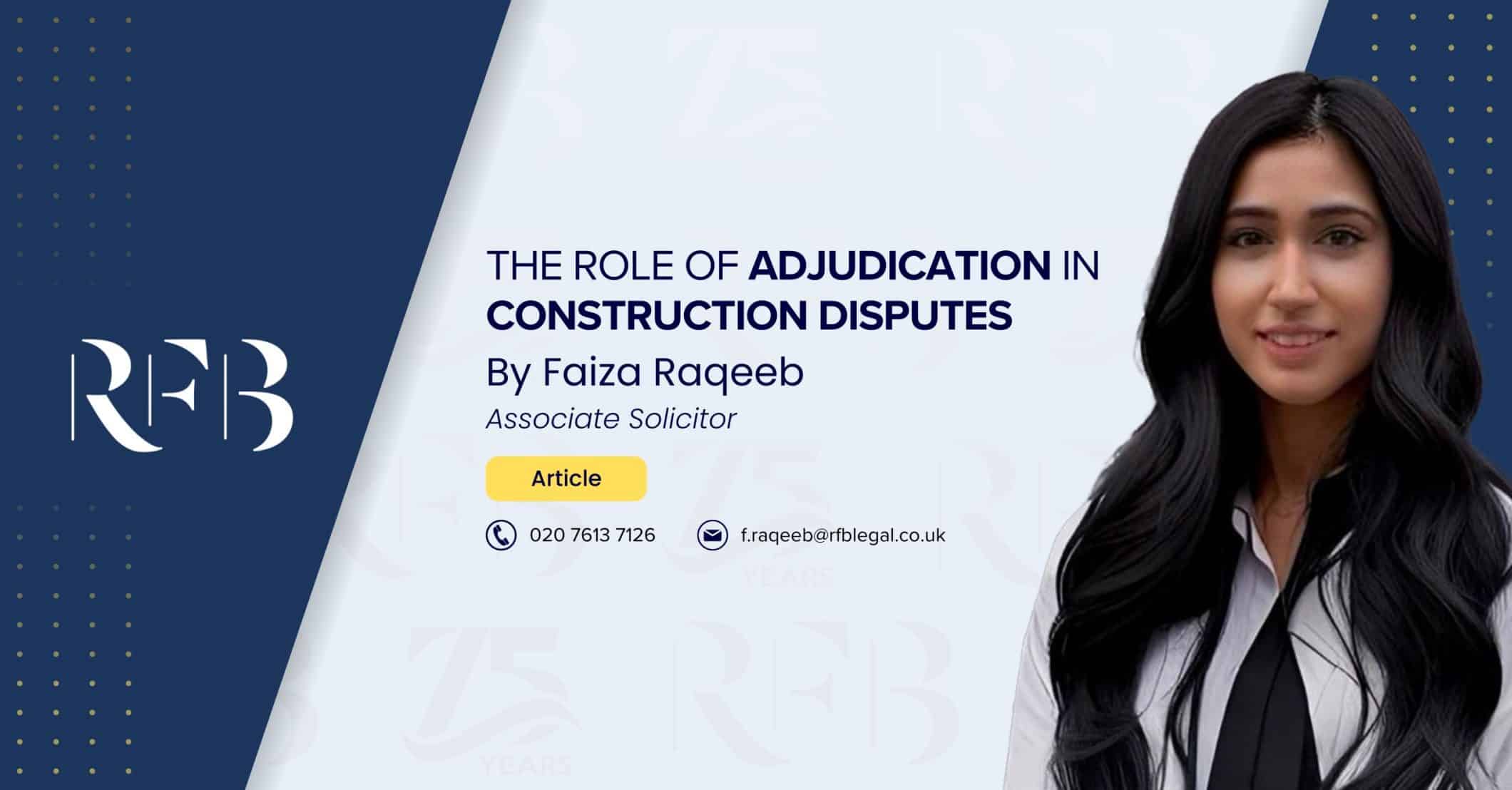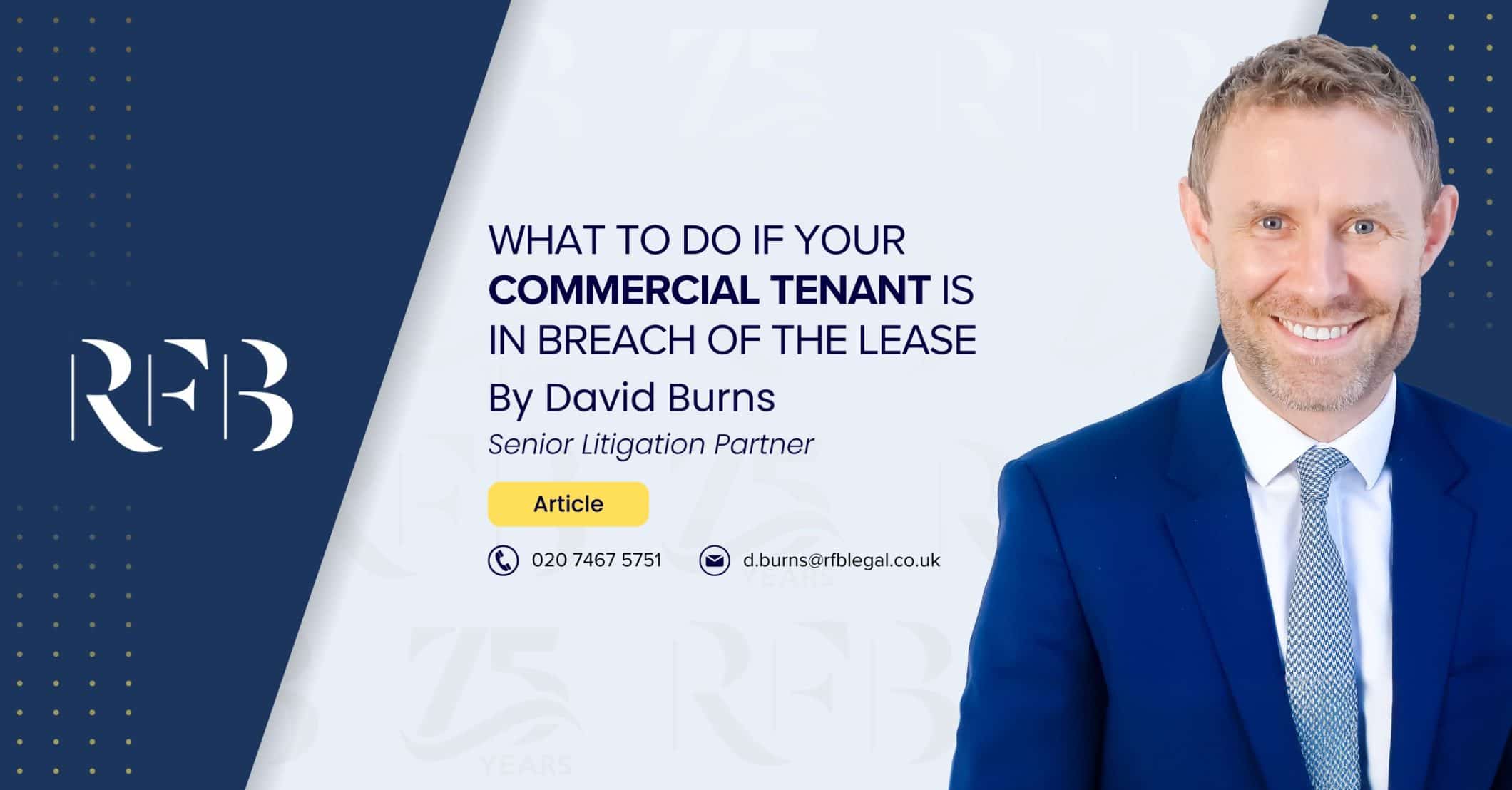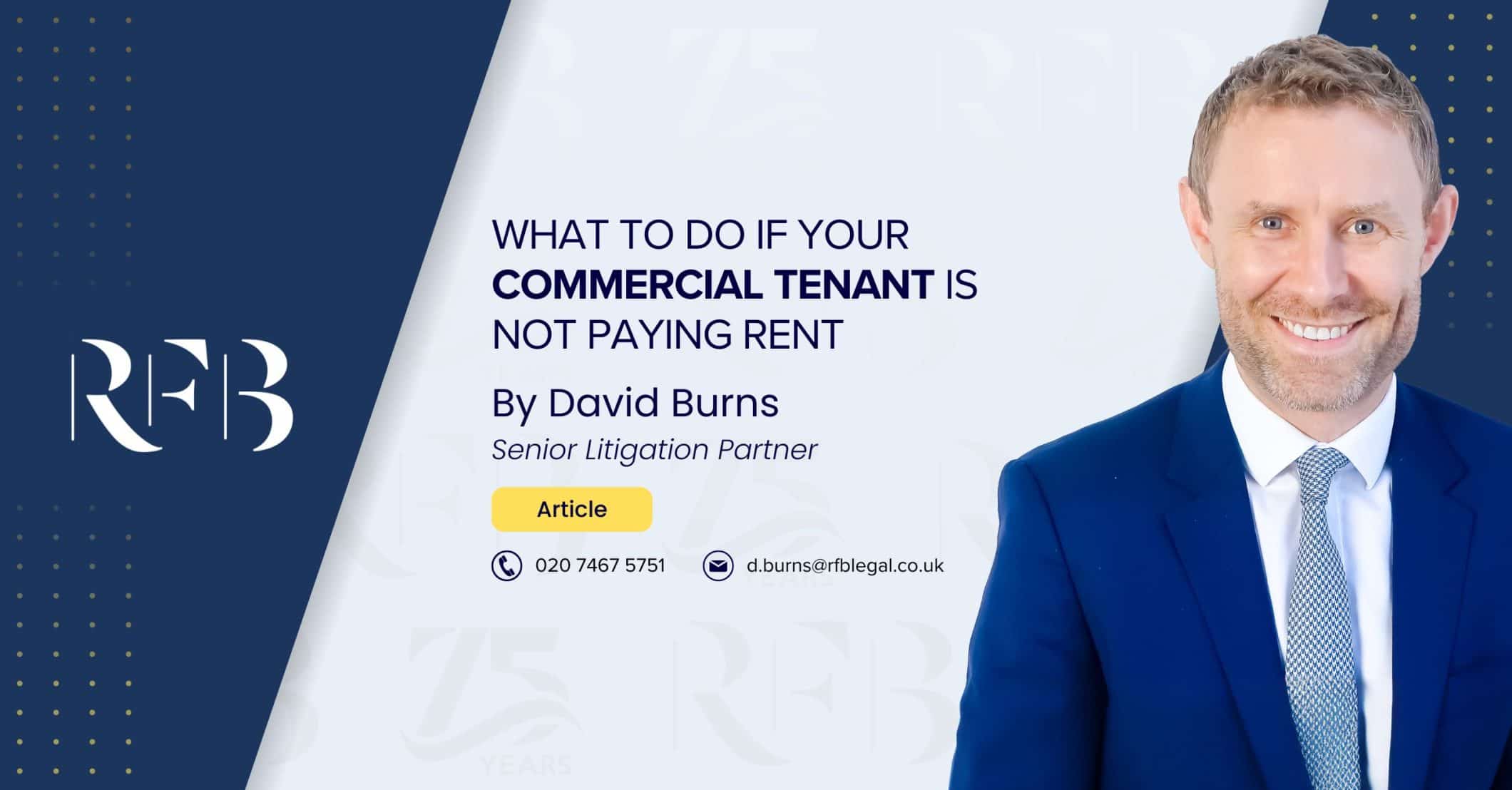Rent review clauses are a standard feature of modern commercial leases. They are generally designed to ensure that rent keeps pace with the market over the term of the lease. In practice, however, reviews are sometimes missed, delayed, or simply not actioned.
The result is what is often referred to as a “historic rent review”, a rent review that should have taken place years earlier but has not been implemented.
When a historic rent review is triggered, disputes often follow. Substantial rent arrears may be claimed retrospectively, interest may accrue, and tenants may find themselves facing unexpected liabilities to pay in a short space of time. Conversely, landlords who have failed to review rent in a timely fashion may, in certain circumstances, find they cannot recover what they hoped.
At Ronald Fletcher Baker, we regularly advise both landlords and tenants on disputes arising from historic rent reviews. This article explores why historic rent reviews arise, the legal framework, and the practical and strategic considerations for each side.
Why do historic rent reviews arise?
Several scenarios can lead to a rent review being left dormant for a long period of time:
- Administrative oversight: landlords or managing agents simply fail to serve a review notice on time.
- Strategic delay: parties sometimes postpone review discussions in anticipation of market changes.
- Uncertainty over lease terms: disputes about review clauses can discourage action.
- Change of ownership: when leases are assigned or investment portfolios sold, rent review opportunities can be overlooked.
Whatever the reason, the question then often becomes whether, and how, a rent review can still be implemented.
The legal framework
Time is not usually “of the essence”. It is important to check the specific terms of your lease to determine precisely what the position is. Most modern rent review clauses make clear that ’time is not of the essence’ and therefore it may, depending on the circumstances of the case, be possible for a rent review to be triggered at any time after the review date, and the new rent (once determined) will be payable retrospectively from the review date.
Courts have held in previous cases that, unless the lease expressly makes time of the essence, a landlord does not lose the right to initiate a review merely because the review date has passed.
Case law
Some key cases have clarified the principles regarding rent reviews in commercial leases:
- United Scientific Holdings Ltd v Burnley Borough Council [1978] A.C. 904: confirmed that time is not “of the essence” in rent reviews unless expressly stated. A review may be initiated years late, and the revised rent will apply retrospectively.
- Scottish & Newcastle plc v Raguz [2008] UKHL 65: confirmed that once the reviewed rent is determined, the tenant is liable for arrears back to the review date. This will be subject to the terms of the specific lease.
Valuation date
Importantly, the rent is determined as at the review date, not the date when the review is finally conducted. Valuers must therefore look back to market conditions on that historic date, which can be difficult if the review is many years late.
Interest on arrears
Most leases provide that once the reviewed rent is ascertained, arrears from the review date to determination are payable with interest. This can make historic reviews very expensive for tenants.
Risks for landlords
Valuation difficulties: instructing valuers to assess market rent retrospectively can be complex, costly and contested.
- Tenant resistance: tenants may attempt to challenge late reviews, arguing waiver, estoppel, or that the landlord has lost the right.
- Cash flow: landlords may face long litigation before recovering arrears.
- Documentation gaps: changes of ownership or lost paperwork can undermine the landlord’s claim.
Risks for tenants
- Large unexpected liabilities: arrears over many years, plus interest, can be crippling.
- Uncertainty for business planning: until the review is resolved, the true rent liability remains unclear.
- Limited defences: unless time is made of the essence, depending on the facts of the specific case, tenants may face difficulty escaping liability.
- Potential insolvency consequences: large historic arrears can put tenant businesses at risk.
Practical guidance
Para los propietarios
- Audit leases regularly: check review dates and ensure notices are served promptly.
- Do not assume a rent review is lost: even if years have passed, you may still have the right to initiate.
- Instruct specialist valuers: historic valuations are complex and often hotly contested.
- Check lease wording: some older leases may include drafting that makes time of the essence, in which case delay can be fatal.
- Consider settlement: in some cases, agreeing a forward-looking rent can be more commercial than pursuing historic arrears.
Para los inquilinos
- Review your lease: look carefully at whether time is expressly made of the essence.
- Seek valuation advice early: a robust expert report is crucial in resisting inflated landlord claims.
- Negotiate interest: even if arrears are due, tenants may be able to negotiate a reduction or waiver of interest.
- Raise equitable arguments: in some cases, estoppel or waiver may provide a defence, particularly if the landlord’s conduct suggested no review would be pursued.
- Plan cash flow: be prepared for the financial impact if arrears become payable.
Strategic considerations
- Settlement vs litigation: historic reviews often turn on valuation disputes, which are expensive to litigate. Early settlement can be commercially sensible.
- Market conditions: if the market has fallen since the review date, tenants may benefit from pressing for review even if late. Conversely, landlords may strategically delay if historic dates favour them.
- Successor landlords/ tenants: historic reviews can complicate assignments and investment sales. Due diligence should always include a rent review audit.
Preguntas más frecuentes
Is it ever too late for a landlord to carry out a rent review (during the tenancy)
The case of Scottish & Newcastle Plc v Raguz [2008] UKHL 65 is the authority that the liability for a shortfall payment falls due on the day the rent is agreed or determined and not when either the review period commences or when the review process is triggered.
This approach was followed in Bello v Ideal View [2009] EWHC 2808 (QB) where the court decided that the landlord’s right to initiate the rent review was not time barred, despite there being a 13-year delay in triggering the rent review.
As the landlord had not yet triggered the rent review, and the time limit to make a claim for recovery of the rent arrears does not run until that point, they were entitled to the uplifted rent. Provided the lease is still in existence, the landlord’s contractual right to the rent reviews survives indefinitely.
Generally, provided the lease does not make time of the essence it may be possible to implement historic rent reviews.
Is there any way for a tenant to resist?
Possible arguments include estoppel, waiver, or that the lease wording made time of the essence. Otherwise, liability is difficult to avoid.
Generally, the landlord would only be estopped from initiating the rent review if they had made a representation to the tenant that they would not trigger it, and the tenant had acted to their detriment in reliance of that representation. That would be an unusual scenario.
What if the landlord has changed during the lease term?
Depending on the specific facts of the case, successor landlords may be able to enforce rent reviews, provided title and notices are properly assigned and served. Gaps in documentation can create disputes.
What if the market at the review date was lower than passing rent?
Most modern commercial leases contain “upward-only” clauses, meaning rent cannot fall on review. Even if market rent was lower, rent will remain the same.
Can a landlord carry out a rent review after the tenancy has ended?
If a rent review is not triggered by the landlord during the tenancy, it is unlikely that the landlord will be able to rely upon the rent review provisions in the lease after the tenancy has ended to allow the landlord to claim the ‘shortfall payment’. That is, the uplift in rent between the current rent and the new rent that would be due from the tenant at the review date, had the rent review been completed.
The rights and obligations contained in the lease cease at the end of the contractual term. Generally speaking, so does the landlord’s right to claim that uplift in rent.
What if the commercial lease expired but the tenant is holding over? Can the landlord still exercise a rent review?
Once the lease has been terminated (which must be by a method recognised by the LTA 1954), the landlord is unlikely to be able to call for any rent review for this period.
It might be possible for a historic rent review to be triggered during a statutory continuation under the Landlord and Tenant Act 1954. The case of Willison v Cheverell Estates Limited [1996] 1 EGLR 116, CA was clear that certain forms of rent review wording do not allow for a rent review once the contractual term has ended. However, the judgment indicates that if the wording in the lease had been drafted differently, it might have produced a different result.
However, each case will be fact specific, and the law is not certain on this point. This complicated situation illustrates how important it is for landlords to keep on top of rent reviews and to make sure to trigger them before the contractual term ends.
During the period of statutory continuation, the usual way to deal with rent review for the period from the service of the section 25 notice to grant of the new lease is by way of an interim rent application pending the grant of a new lease under the LTA 1954.
The rent for the new lease will be determined by the court if not agreed.
What is the effect of the Limitation Act 1980?
Once the reviewed rent has been agreed or determined, the rent will have become due for payment.
Section 19 of the Limitation Act 1980 limits a claim for recovery of rent arrears to 6 years from the date the arrears became due i.e., the date the rent is agreed or determined. Once the rent review has been completed, a commercial landlord should take steps to collect the uplifted rent. If more than 6 years pass, the right to collect that uplifted rent will likely be lost.
Can the tenant make time of the essence by serving a notice?
The decision in Proxima GR Properties Ltd v Spencer [2017] UKUT 450 (LC) confirms that the tenant is not able to make time of the essence by serving a notice purporting to do so. Unless the lease provides a specific right, the tenant must wait for the landlord to initiate the process.
Conclusión
Historic rent reviews can become hotly contested.
Delaying the rent review is not advisable where it can be avoided. It puts the tenant in a difficult position if they are unaware of how much additional rent will become due and they have not budgeted accordingly. There is also a greater risk of the tenant resisting the rent review, giving rise to litigation.
For landlords, historic rent reviews can represent an opportunity to correct years of underpayment, but also bring evidential and litigation risks. For tenants, they can lead to substantial, unexpected arrears.
The law is clear, unless the lease expressly states otherwise, there is a rebuttable presumption that time is not of the essence and therefore rent reviews can usually be initiated late, and liability can run back to the review date. But each case turns on careful lease interpretation.
At Ronald Fletcher Baker, our Property Litigation team has extensive experience advising on rent review disputes, including complex historic reviews. Whether you are a landlord seeking to recover arrears or a tenant facing a claim, we can guide you through the risks, defences, and opportunities for resolution.
Litigios inmobiliarios: Contáctenos
Ben Lewis is an associate solicitor in RFB’s litigation department together with Senior Litigation Partner, David Burns. For inquiries on this topic, please contact Ben Lewis via email at B.Lewis@rfblegal.co.uk or by phone on 0203 947 8892 or contact David Burns on D.Burns@rfblegal.co.uk o por teléfono en el 0207 467 5751.



